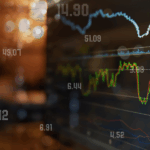Facing a significant legal battle, FTX founder Sam Bankman-Fried is gearing up to challenge his 25-year fraud conviction. This move comes amidst ongoing debates about the legitimacy of his business practices at the cryptocurrency exchange. Bankman-Fried’s legal team aims to revisit his case, arguing that critical evidence in his favor was overlooked, potentially shaping his previous trial’s outcome. The cryptocurrency sector observes this development closely, as it may set precedents impacting future regulations and legal frameworks.
Bankman-Fried’s recent legal struggles follow a series of events from 2023 when he was convicted for fraud linked to FTX’s collapse. His legal team contends the trial lacked fairness, asserting that evidence proving sufficient funds for customer withdrawals was suppressed. Conversely, earlier reports highlighted intense scrutiny and criticism from insiders and government bodies. Conflicting narratives depict him as both a businessman who misjudged risks and someone culpable for financial misconduct.
What Are the Arguments for a New Trial?
His defense argues that the trial was compromised. Key evidence, supporting the claim that FTX could meet customer demands, was allegedly excluded. They believe this oversight skewed perceptions of how FTX functioned, contributing to the fraud charges. Bankman-Fried’s lawyer maintains:
“The exclusion of pivotal evidence undermined the trial’s integrity.”
Are There Political Moves Involved?
Reports suggest efforts lobbying President Donald Trump for a potential pardon for Bankman-Fried. However, these attempts remain speculative as no official decisions have been communicated. The context includes Trump’s recent involvement in cryptocurrency legal matters, such as pardoning the former Binance CEO. Bankman-Fried’s supporters emphasize legal reform in the industry while he stated:
“We are exploring all avenues to ensure justice and fair treatment.”
Adding another layer, the Solana blockchain, closely tied to FTX, has recently regained traction. Its recovery highlights resilience and the ongoing role of decentralized finance in the national crypto reserve discussions. This revival, shared by other blockchains like Algorand and Cardano, signifies a shift from being viewed merely as speculative assets to vital infrastructure components within the financial sector.
The potential for a retrial not only affects Bankman-Fried’s future but could influence broader judicial and industry practices. As stakeholders anticipate the case developments, they consider how regulatory measures can adapt to increasingly complex blockchain technologies and crypto assets.
Those monitoring the case anticipate wider implications for legal transparency and regulatory assessment in the cryptocurrency industry. Bankman-Fried’s legal defense and their approach to contesting evidence exclusion will be scrutinized for years, shaping the landscape of digital currency operations.









